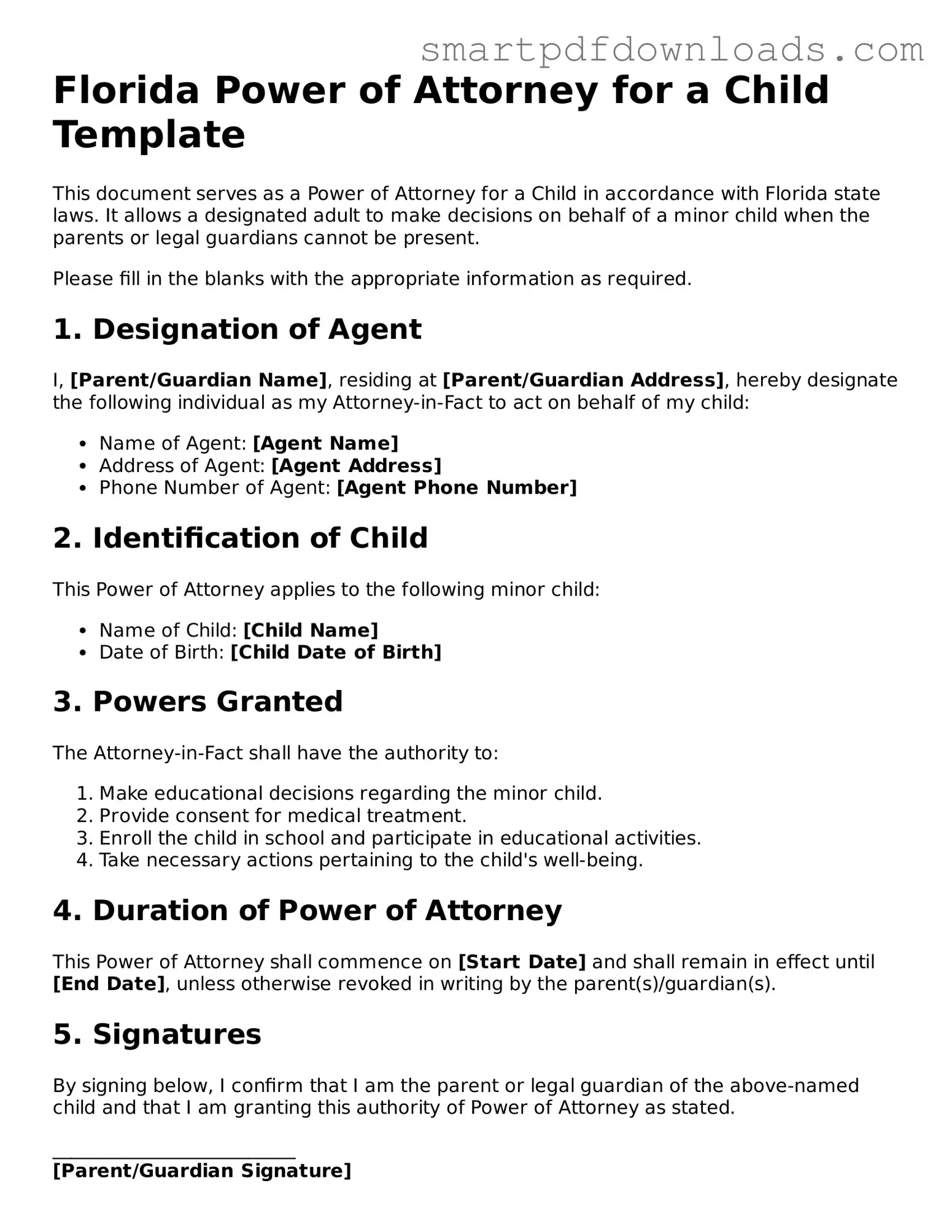Legal Power of Attorney for a Child Form for the State of Florida
The Florida Power of Attorney for a Child form is a legal document that allows a parent or guardian to grant temporary authority to another adult to make decisions on behalf of their child. This form is particularly useful when parents are unavailable due to travel, work commitments, or other circumstances. By utilizing this form, parents can ensure that their child's needs are met in their absence.
Edit Power of Attorney for a Child Online

Legal Power of Attorney for a Child Form for the State of Florida
Edit Power of Attorney for a Child Online

Edit Power of Attorney for a Child Online
or
⇓ PDF File
Finish the form and move on
Edit Power of Attorney for a Child online fast, without printing.